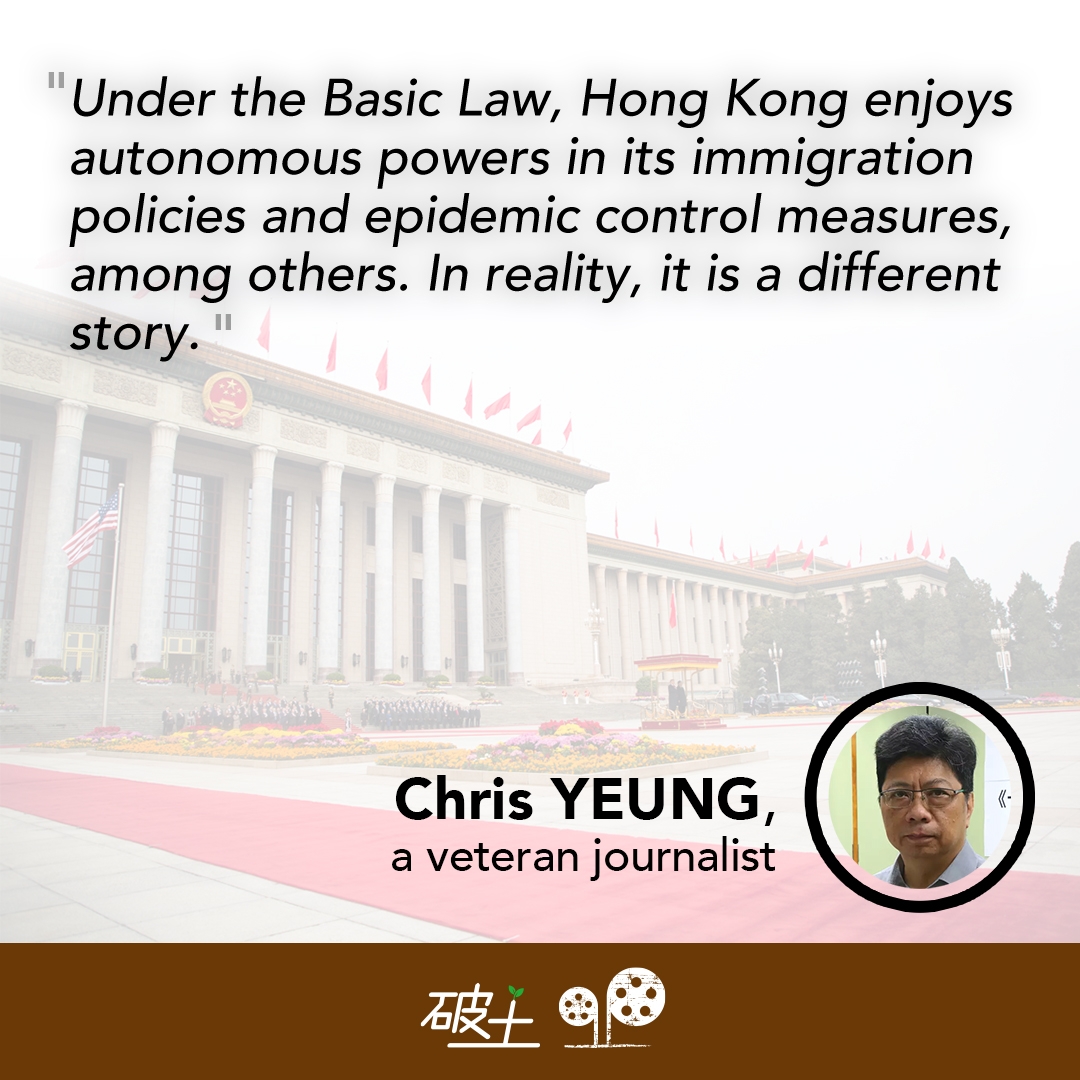Will China open borders and doors after Congress?

All eyes are on the 20th national congress of the Chinese Communist Party, which is scheduled to be convened in Beijing on October 16. Governments in different parts of the world will be keen to decode the messages emanating from the congress and their implications on China’s trajectory of development and policies in the next five years under the leadership of Xi Jinping.
But to the jittery Hong Kong business community, the answer they are looking for is simpler, namely whether the closing of the congress will mark the beginning of an easing of cross-border travel and, if so, when and how.
No thanks to the outbreak of the Covid-19 epidemic in Wuhan in early 2020, China has since then largely isolated itself from other parts of the world, including Hong Kong, through its “dynamic-zero” Covid policies. Hong Kong people who pay visits to the mainland have to undergo a “7+3” hotel quarantine arrangement. Due to the shortage of hotel rooms, many Hong Kong people have encountered enormous difficulties in paying visits to the mainland for purposes such as business, and family visits and studies.
More damagingly, the suspension of issuing tourist visas for mainland residents to travel to Hong Kong since January 2020 has battered the Hong Kong economy. Worst-hit are tourism-sectors such as hotel and retail.
Under the Basic Law, Hong Kong enjoys autonomous powers in its immigration policies and epidemic control measures, among others. In reality, it is a different story.
The Government has primarily followed the nation’s “dynamic-zero” anti-Covid strategy although former Chief Executive Carrie Lam has on one occasion admitted publicly she did not understand what “dynamic-zero” meant. She added it was created by someone without giving names.
Along the line of “dynamic-zero” approach, the Government, both under Lam and now John Lee, has stuck to the mainland’s two-thronged strategy. It included guarding against infections from arrivals and spread of local infections through requirements such as hotel quarantine, social distancing rules and compulsory testing in residential blocks.
It was only after a joint chorus of calls for the Government to ease its hotel quarantine requirement to help open Hong Kong to the outside world in the past few weeks that moves of a departure of the city’s Covid-19 measures from the mainland emerged.
In what has been hailed as a big step forward last month, the Government has scrapped its three-day hotel quarantine arrangement and replaced it with a “0+3” system, where arrivals undergo three days of medical surveillance at home or in a hotel. They are free to move around in the city but are barred from visiting places such as restaurants and bars.
As predicted, arrivals figures show the relaxation has given no significant help in boosting inbound travelers. With the tally of daily infection staying flat at the 3,000-level in the past fortnight, a fresh round of calls for the Government to lift more curbs on travel and social distancing and scrap the LeaveHomeSafe pass for entry into premises such as restaurants has kickstarted.
While urging the Government to catch up with other parts of the world in restoring normalcy by scrapping a long list of anti-Covid rules, the pro-establishment circle and business sector have joined hands to put pressure on the Lee team to strive for an easing of curbs in cross-border travel.
Despite hints of an imminent relaxation, a full easing of travel curbs in the mainland still looks unlikely at this stage.
Speculation grew early last week after Tam Yiu-chung, a Hong Kong delegate to the National People’s Congress Standing Committee, quoted his “friends in the mainland” as saying travel restrictions across the border could be loosened after the party plenum. Lo Man-tuen, a vice-chairman of the All-China Federation of Returned Overseas Chinese, wrote in an article in Ming Pao on Wednesday the remarks about relaxation “is not groundless.” He has not elaborated further.
Citing Xi’s July 1 speech in Hong Kong, Lo said the central authorities have attached great importance to the international status of Hong Kong, hoping that the city could play a bigger role in the nation’s further opening up to the world. Beijing, he said, fully supports the recent easing of curbs on travelers.
Barring unexpected twists, Hong Kong looks set to remove the medical surveillance requirement and restrictions of entry of travelers to restaurants this month before the city hosts an international financial summit and the International Rugby Seven in November as planned.
Cross-border travels, however, are not likely to return to normal if the mainland sticks to its tight Covid-19 policies.
Billed as the most important event in China’s political calendar every five years, the party’s national congress will shed some light on China’s policy towards the world.
The rapid-changing global geopolitical scene and Covid-19 epidemic have resulted in China closing its doors in recent years. Whether it will change its course will not just impact on cross-border travel and Hong Kong as a whole but, more importantly, China’s relations with the world.
▌[At Large] About the Author
Chris Yeung is a veteran journalist, a founder and chief writer of the now-disbanded CitizenNews; he now runs a daily news commentary channel on Youtube. He had formerly worked with the South China Morning Post and the Hong Kong Economic Journal.